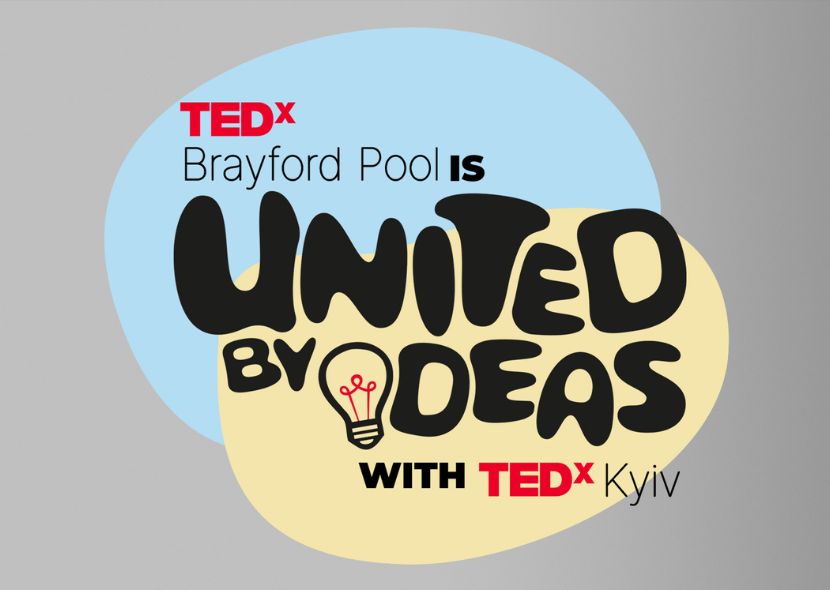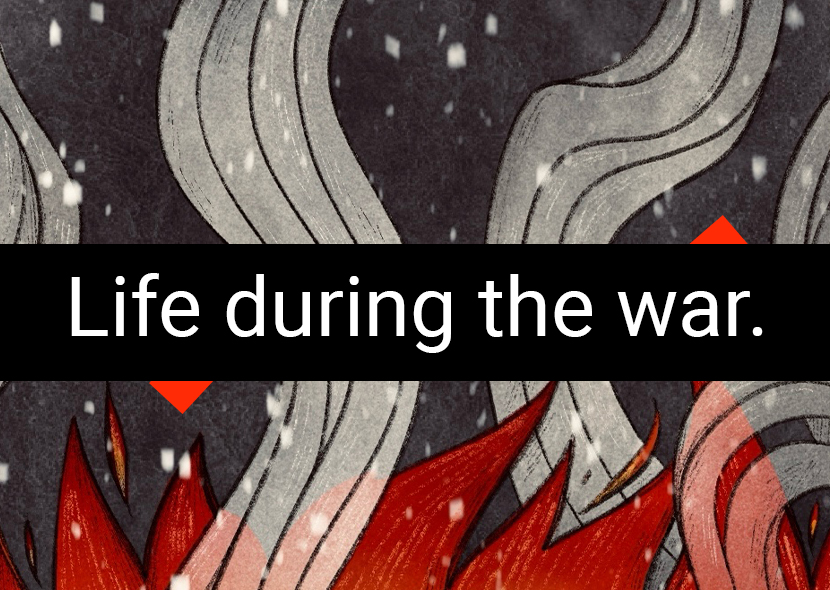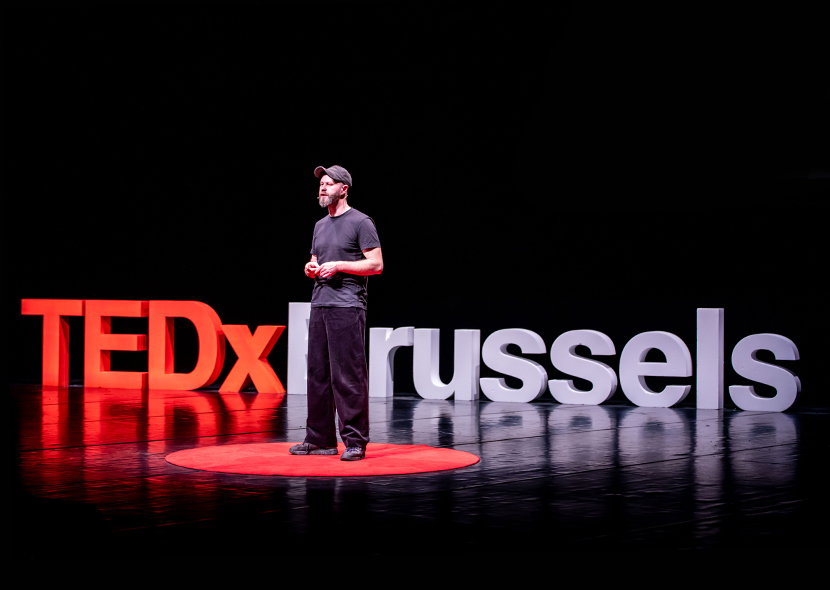
Our struggle is a long-distance race. Oleksandra Matviychuk's speech at TEDxKyiv
Our Fight Is a Long-Distance Run
In 2022, the Ukrainian Center for Civil Liberties received the Nobel Peace Prize. From now on, the voice of Ukrainian human rights defenders sounds even louder on the world stage. To see how this journey began, we suggest recalling the speech of the head of the organization Oleksandra Matviychuk at TEDxKyiv back in 2018.
Think of a moment in your life when you were really scared. For me, it was February 20, 2014.
I am coordinating the work of Euromaidan SOS. We have been working 24 hours a day for the third month, and hundreds of protesters who have been beaten, arrested, tortured, or accused of trumped-up criminal cases have been passing through our hands.
On February 20, from the very morning, our hotlines began to ring off the hook.
People called en masse, saying that unarmed protesters were being shot at Maidan. Our volunteers rushed to hospitals, churches, morgues, and other places where the dead were being taken. We had to make it and document all those killed by the regime so that the authorities could not hide the crimes. At the moment, sitting over the lists and photos of the dead, I realized that there were not five or ten of them.
Why We Deal with Political Detainees and Prisoners of War
We started documenting crimes against humanity and were the first to send mobile groups to Crimea and Donbas. Since then, the war is a matter of my personal experience.
We all carry thousands of untold stories inside of ourselves. Often people cannot tell something to their closest ones, but whom they trust is you in the vague hope for justice deferred in time. Five and a half million people live in the occupied territories of Crimea and Donbas. [As of 2018 - ed.] All of them are in the gray zone, and none of them is safe from anything.
I talked to people who were raped, had their limbs cut off, were stuffed into wooden boxes, and had their eyes taken out with a spoon. Then I came to a simple realization — yes, I cannot change anything, but nothing will change without me.
All these years we have been fighting for three things. First, we must learn to see real people behind the numbers. Secondly, we must fight not for heroic images, but for people with all their strengths and weaknesses. And thirdly, we have no right to get used to the fact that people can stay in Russian prisons and Donbas basements for years.
None of Us Was Born for War
When Oleg Sentsov went on hunger strike, I was at Stanford. I remember how ashamed I felt that I was in a cozy campus listening to a lecture by Fukuyama, while Oleg put his own life on the line to free others. Then I initiated the campaign "Save Oleg Sentsov", which was supported by many people, and we managed to organize simultaneous demonstrations in 45 countries.
Why do people who have never met Oleg or other political prisoners suddenly spend their time and energy on their release? The answer is paradoxical — we are actually fighting for ourselves. None of us was born for war, but we are all here to defend our freedom.
We fight for people without any guarantees and obligations. Not because they have to meet our expectations after their release. But because fighting for others makes us better, makes us human.
Do you remember Roman Hurik? He is one of the Heavenly Hundred victims, a curly-haired boy who will always be 19 years old. I listened to his mother's tremendously difficult confession in court. She did not want to let him go to Maidan, but she recalled how 10 years before, she herself had been standing at the Orange Revolution, and therefore, she simply had no moral right to deny him that.
And then it hit me like an electric shock. I thought, “Will my children also be forced to go to this square covered with blood and tears to finish what we, their parents, did not have time to do?”
Learning to Fight for Our People
Something has broken in our world, and international mechanisms no longer work. Therefore, we need to give them a good kick, so that a large number of people make simultaneous efforts and we move from UN reports to collective actions.
We often appeal to people and ask them to take this or that action — to sign a petition, go to a rally, etc. Many, for example, start by writing letters to political prisoners.
Once we received a response from the late Yuriy Soloshenko. He was writing that our letter had reached him in the prison hospital. He did not have glasses, but he was as happy as a child and began to hold it up to the window light, trying to guess rather than read what was written there.
We must learn to fight for our people and not to shift this responsibility onto the shoulders of others. One of the first killed in this war is Volodymyr Rybak from Horlivka. He was kidnapped on Maundy Thursday before Easter, when he alone in front of an angry crowd demanded to return the Ukrainian flag to the administrative building.
His terribly mutilated body with a torn stomach was identified by his wife Olena. A few weeks later, she called me and said that she wanted to help us to get at least someone out of the basements where her husband had been tortured.
We Will Get Everyone Out
Together we have already achieved many results. We managed to provide medical assistance to Uzuir Abdulayev while his mother was crying at the walls of the Crimean pre-trial detention center, where her son was dying. We made sure that the resolution of the European Parliament included the names of all 70 political prisoners, and I remember the joy of their relatives, because it was very important to them. So every time we achieve something, we just win more and more new tasks for ourselves. Because our fight is a long-distance run.
Maidan taught me an important lesson. We were then alone against the whole state machine that wanted to physically destroy us. Everyone was against us. Under such conditions, it was easy to give up and say, “Well, nothing can be done". However, our lawyers and volunteers fought devotedly for each person and procedural means as if the law existed.
This gave an unexpected result. We started on the legal level and reached some unattainably high symbolic level. Everyone at Maidan knew that no one is safe from anything, but there are people who will fight for you. It helped to overcome fear. I have long been convinced that there are no simple answers or ready-made algorithms for guaranteed success. But I look into the future with optimism, although I do not see it easy.
I know that sooner or later we will get everyone out. We will have to work hard for this, but this fight will make us better.
Пригадайте момент свого життя, коли вам було дуже страшно.
Для мене це 20 лютого 2014 року:
я координую роботу Євромайдан SOS, ми працюємо вже третій місяць поспіль по 24 години на добу, через наші руки проходять сотні побитих, арештованих, катованих та обвинувачуваних у сфабрикованих кримінальних справах учасників протесту.
Із самого ранку 20 лютого наші гарячі лінії розривалися.
Люди масово дзвонили, розповідаючи, що на Майдані розстрілюють беззбройних демонстрантів. Наші волонтери зривалися і їхали в лікарні, храми, морги та інші місця, куди зносили загиблих. Ми мусили встигнути і задокументувати усіх, кого вбив цей режим, щоб влада не змогла приховати злочини. Вмить, сидячи над списками та фото загиблих, я зрозуміла, що їх не п’ять. І не десять.
Чому ми займаємося політв’язнями і полоненими
Ми почали документувати злочини проти людяності й стали першими, хто відправив мобільні групи в Крим і на Донбас. Відтоді війна – це питання мого особистого досвіду.
Ми усі носимо в собі тисячі непромовлених історій. Часто траплялося, що люди не могли ділитися певним досвідом із найріднішими, проте довіряли мені із примарною надією на відкладену у часі справедливість.
На окупованих територіях Криму та Донбасу проживає п’ять з половиною мільйонів людей. [Станом на 2018 рік - ред.] Усі вони перебувають в сірій зоні і ніхто з них ні від чого не застрахований.
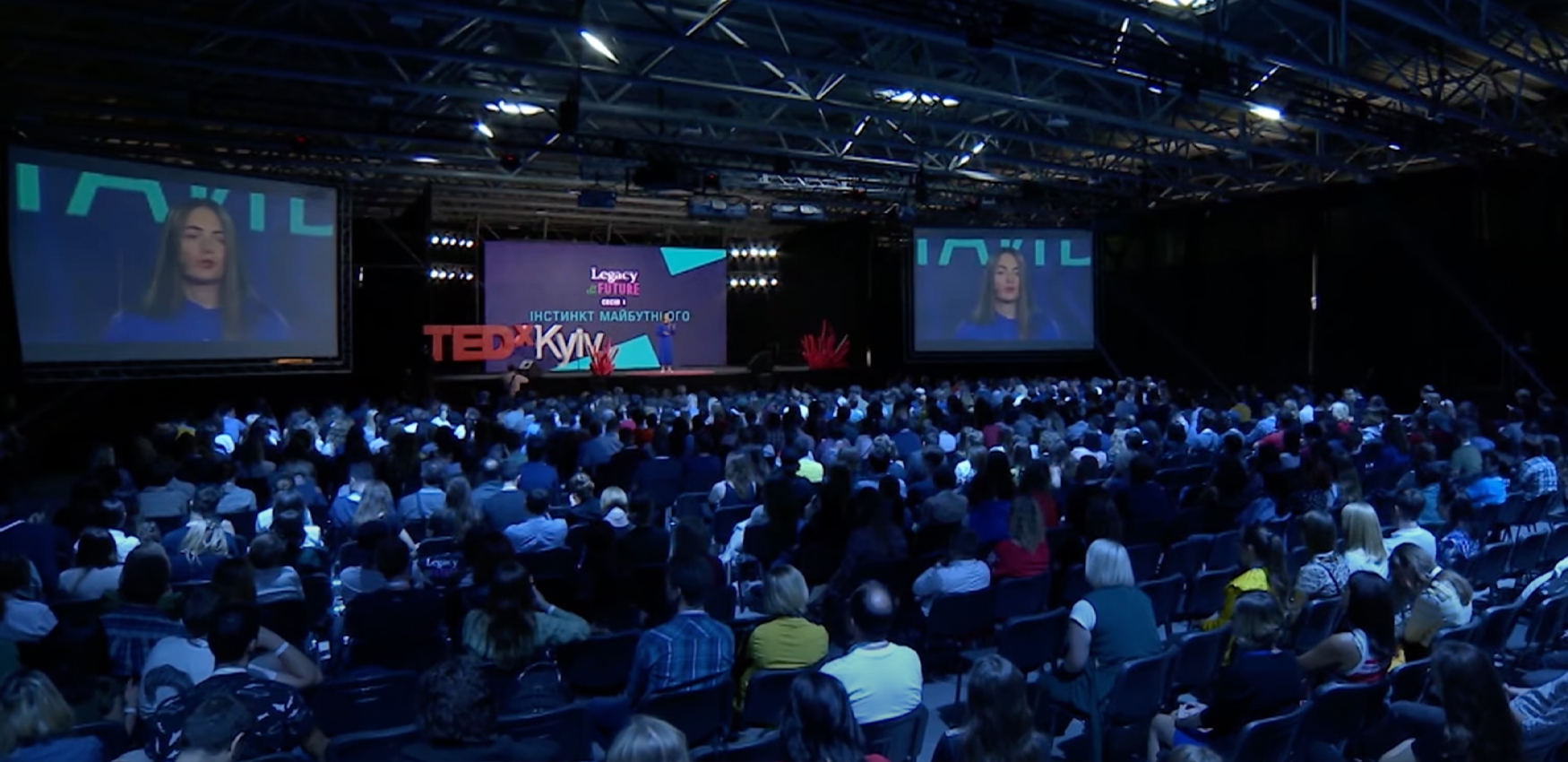
Я говорила з людьми, яких ґвалтували, яким відрізали кінцівки, виймали очі ложкою, забивали в дерев’яні ящики. Тоді я збагнула просту річ: так, я не можу нічого змінити, але й без мене точно нічого не зміниться.
Усі ці роки ми боремося за три речі.
По-перше, ми маємо навчитися бачити за цифрами реальних людей.
По-друге, ми маємо боротися не за героїчні образи, а за людей з усіма їхніми сильними сторонами і недоліками.
І по-третє, ми не маємо права звикати до того, що в російських тюрмах і донбаських підвалах можуть роками перебувати люди.
Ніхто із нас не був народжений для війни
Коли Олег Сєнцов оголосив голодування, я була в Стенфорді. Пам’ятаю, як було соромно, що я у затишному кампусі слухаю лекцію Фукуями, у той час як Олег поставив на кін власне життя заради звільнення інших. Тоді я ініціювала кампанію «Save Oleg Sentsov», яку підтримало дуже багато людей і нам вдалося організувати синхронні демонстрації у 45 країнах світу.
Чому люди, які ніколи не були знайомі ні з Олегом, ні з іншими політв’язнями, раптом витрачають свій час та енергію для їх звільнення? Відповідь парадоксальна – насправді ми боремося для себе. Ніхто із нас не народжений для війни, але ми тут, щоб захистити нашу свободу.
Ми боремося за людей без жодних гарантій і зобов’язань. Не тому, що вони мають після звільнення виправдати наші сподівання. А тому, що боротьба за інших робить нас кращими, робить нас людьми.
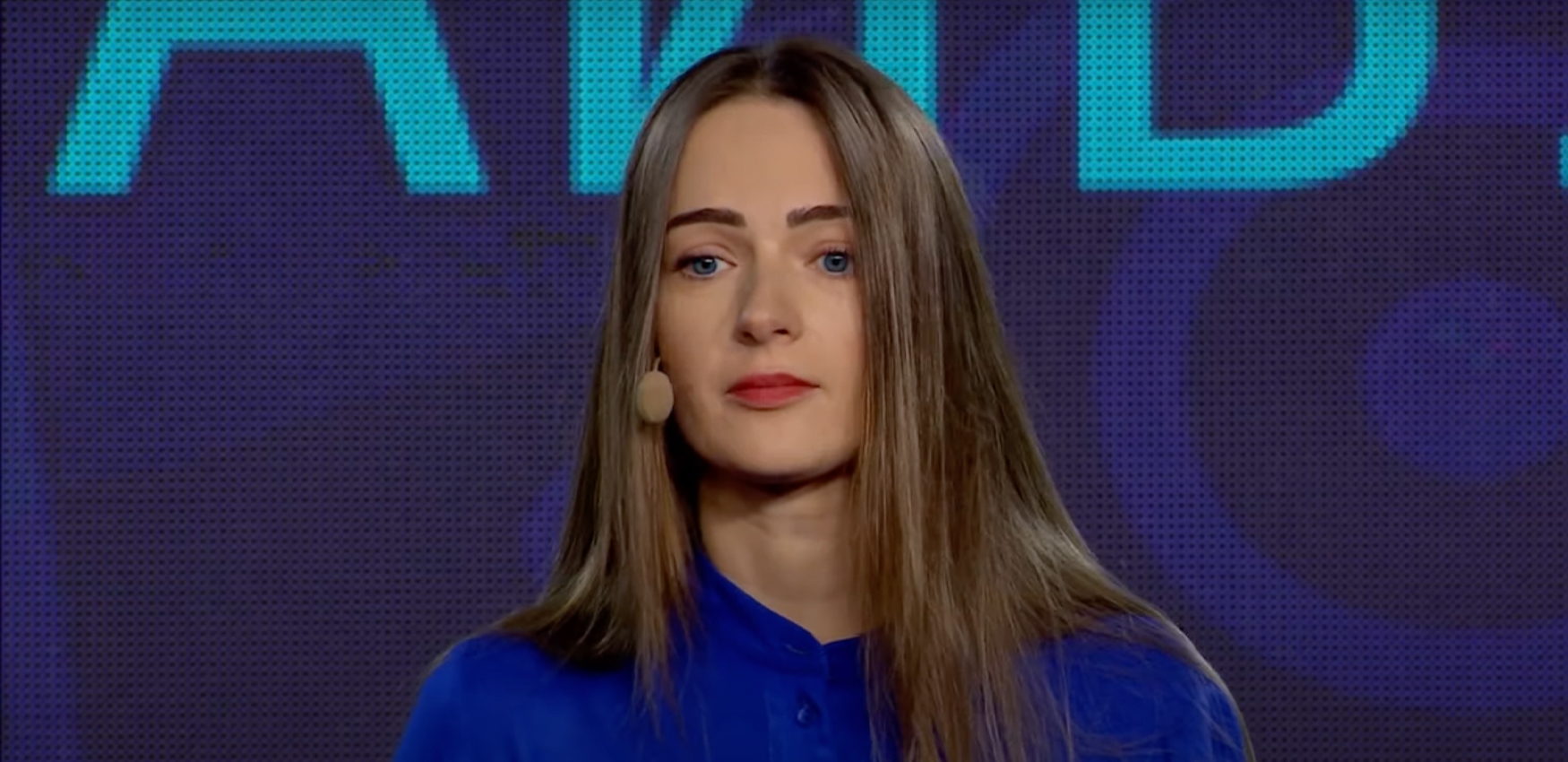
Пам’ятаєте Романа Гурика? Це загиблий Небесної сотні. Кучерявий хлопчина, якому тепер завжди буде 19 років. Я слухала на суді дуже тяжку сповідь його мами. Вона не хотіла пускати його на Майдан, але згадала, як 10 років тому й сама стояла на Помаранчевій революції, тож просто не мала морального права йому заперечити.
І раптом мене наче струмом пройняло. Я подумала: невже і мої діти будуть змушені виходити на цю залиту кров’ю і сльозами площу, щоб завершити те, що не встигли ми, їх батьки?
Навчитися боротися за наших
У нашому світі щось зламалося. Міжнародні механізми більше не працюють. Потрібно дати їм добрячого копняка, щоб велика кількість людей одночасно доклала зусиль і від звітів ООН ми врешті перейшли до колективних дій.
Ми часто звертаємося до людей із закликом зробити певну конкретну дію: підписати петицію, вийти на акцію тощо. Багато хто, наприклад, починає з написання листів політв’язням.
Колись ми отримали відповідь від нині покійного Юрія Солошенка. Він писав, що наш лист прийшов йому у тюремну лікарню. У нього не було окулярів, але він зрадів йому як дитина та почав піднімати його на світло до вікна, намагаючись радше вгадати, ніж прочитати, що ж там написано.
Ми маємо навчитися боротися за наших людей і не перекладати цю відповідальність на плечі інших.
Один із перших загиблих у цій війні – це Володимир Рибак з Горлівки. Його викрали у чистий четвер, перед Великоднем, коли він сам один перед розлюченим натовпом вимагав повернути український прапор на адміністративну будівлю.
Страшенно скалічене тіло з розпанаханим животом ідентифікувала його дружина Олена. Через кілька тижнів вона мене набрала і сказала, що хоче допомагати нам, щоб витягти бодай когось із тих підвалів, в яких закатували її чоловіка.
Витягнемо усіх
Спільними зусиллями ми вже досягали багатьох результатів. Домоглися надання медичної допомоги Узуїру Абдулаєву – тоді, як його мати плакала під стінами кримського СІЗО, у якому вмирав її син.
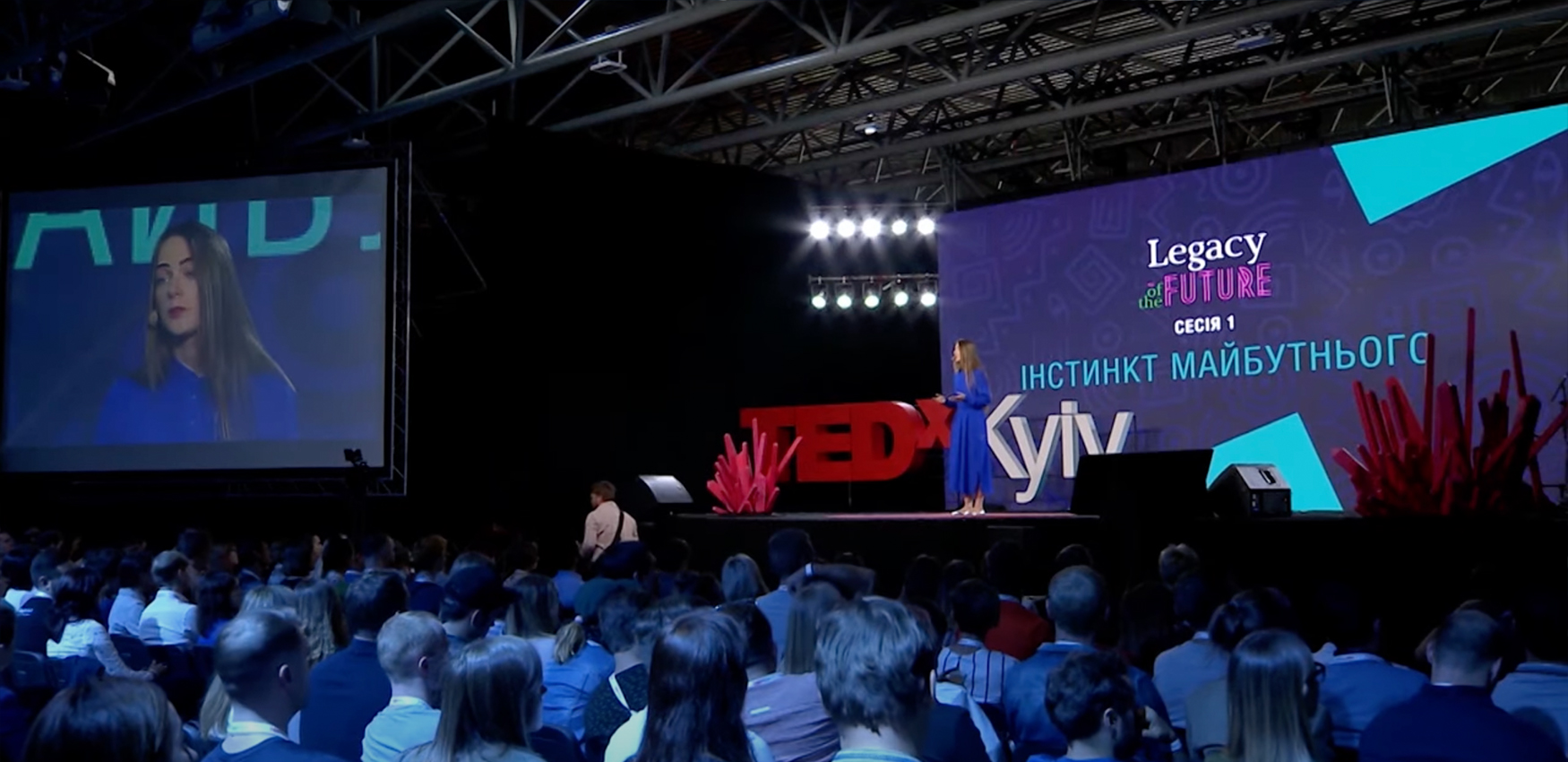
Зробили так, щоб в резолюції Європейського парламенту прозвучали імена усіх 70-ти політичних в’язнів – і я згадую радість їхніх рідних, адже для них це було дуже важливо. Отак щоразу, коли ми чогось досягаємо, ми просто виборюємо для себе нові і нові завдання. Бо наша боротьба – це забіг на довгу дистанцію.
Майдан дав мені важливий урок. Тоді ми були одні проти цілої державної машини, яка хотіла нас фізично знищити. Усі були проти нас. За таких умов було легко опустити руки і сказати: «нічого зробити неможливо». Однак наші адвокати і волонтери віддано боролися за кожну людину і процесуальний засіб – так, ніби право існує.
Це дало несподіваний результат. Ми починали суто на правовому полі, а вийшли зрештою на недосяжно високий символічний рівень. Усі на Майдані знали, що ніхто ні від чого не застрахований, проте є люди, які за тебе боротимуться. Це допомагало подолати страх. Я давно переконалася, що немає простих відповідей чи готових алгоритмів для гарантованого успіху. Але я дивлюсь у майбутнє з оптимізмом, хоча не бачу його легким.
Я знаю: рано чи пізно ми витягнемо усіх. Для цього нам доведеться добряче попрацювати, але ця боротьба зробить нас кращими.
